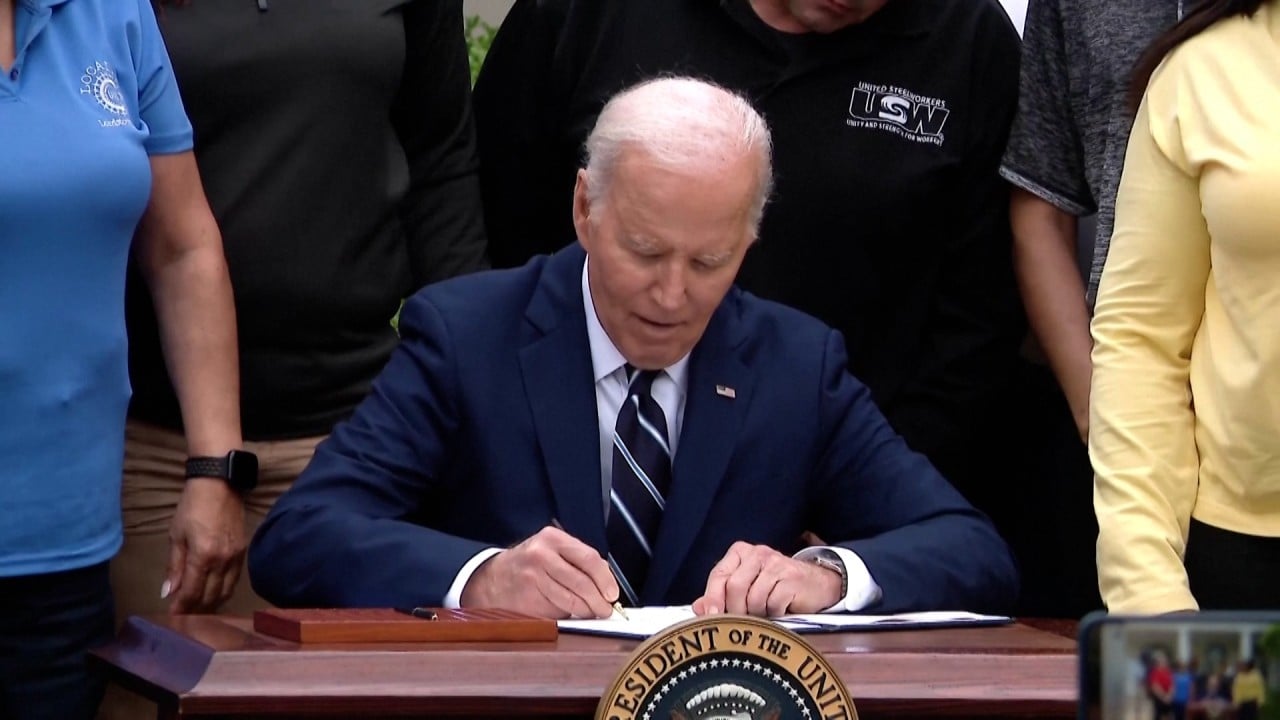For China, be it Donald Trump or Joe Biden at the US helm, the barrage of ‘political’ strikes may only intensify
- Analyst says Beijing is preparing ‘for all types of situations’ in trade war with US that shows no sign of abating after six years
- Biden is ramping up pressure on Chinese imports and Trump has vowed to do the same, keeping China squarely in the presidential opponents’ sights

01:52
US proposes new round of tariffs on China in latest trade war escalation
Washington’s proposal this week to slap high tariffs on some signature Chinese exports has heightened concerns in the world’s second-largest economy as the front runners in November’s US presidential election – incumbent Joe Biden and challenger Donald Trump – are positioning to play tough on their side of the strategic trade rivalry.
They suspect Chinese officials may raise tariffs on American imports while seeking negotiations with Washington and strengthening trade ties in third countries if the former president returns to office and erects further curbs.
Trump could start by revoking China’s preferential trade status with the US and following through on his February pledge to raise tariffs on all imported Chinese goods by up to 60 per cent if re-elected, the Economist Intelligence Unit (EIU) said in a May 2 research note.
In taking a hard line against China, US politicians have long threatened to pull that preferential trade status, which has been in place since 2000 and is known as “permanent normal trade relations”.
The legal designation helped pave the way for China to join the World Trade Organization in 2001 and serves to reduce the cost of imported goods while offering greater certainty for US businesses to invest in China.
